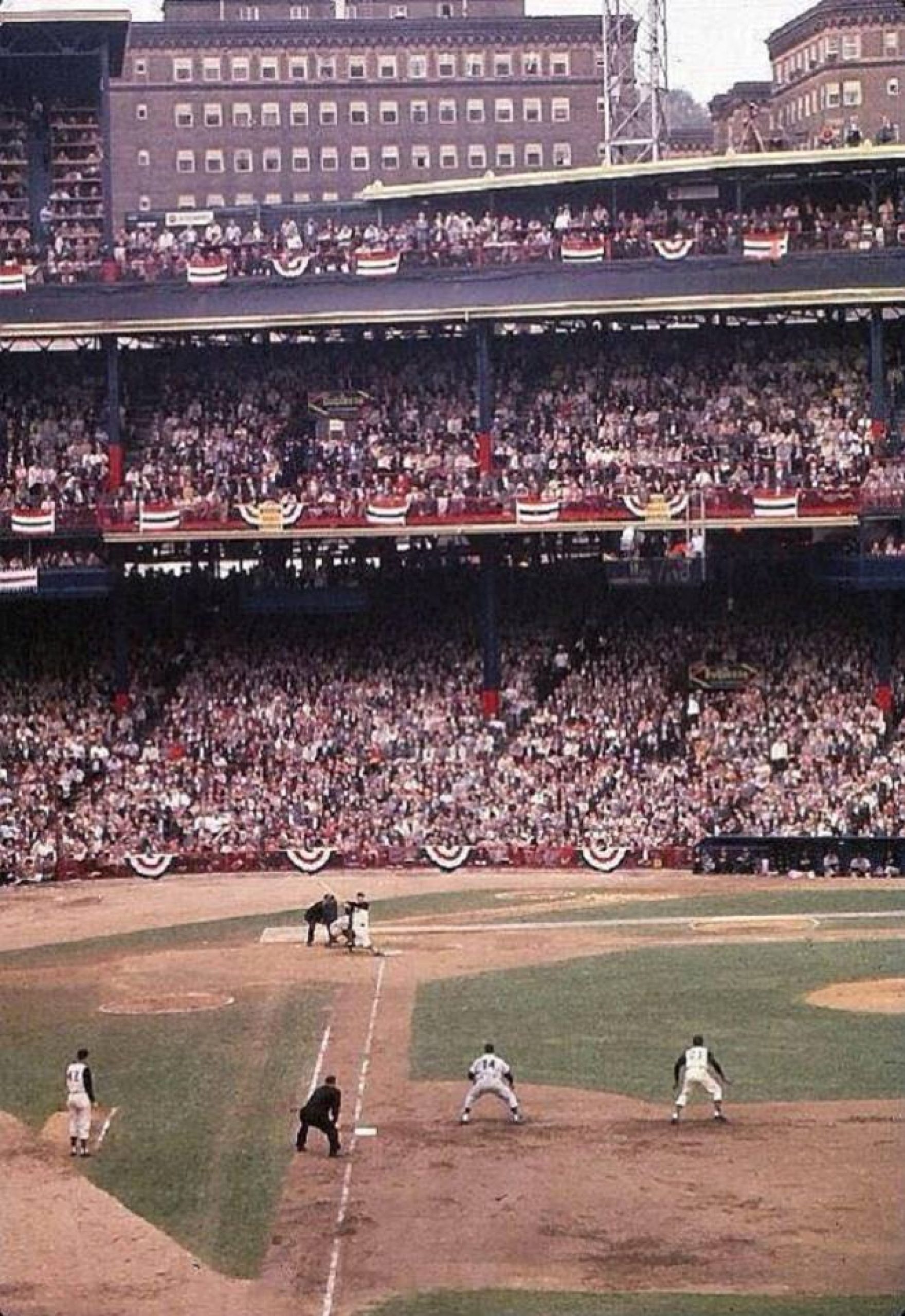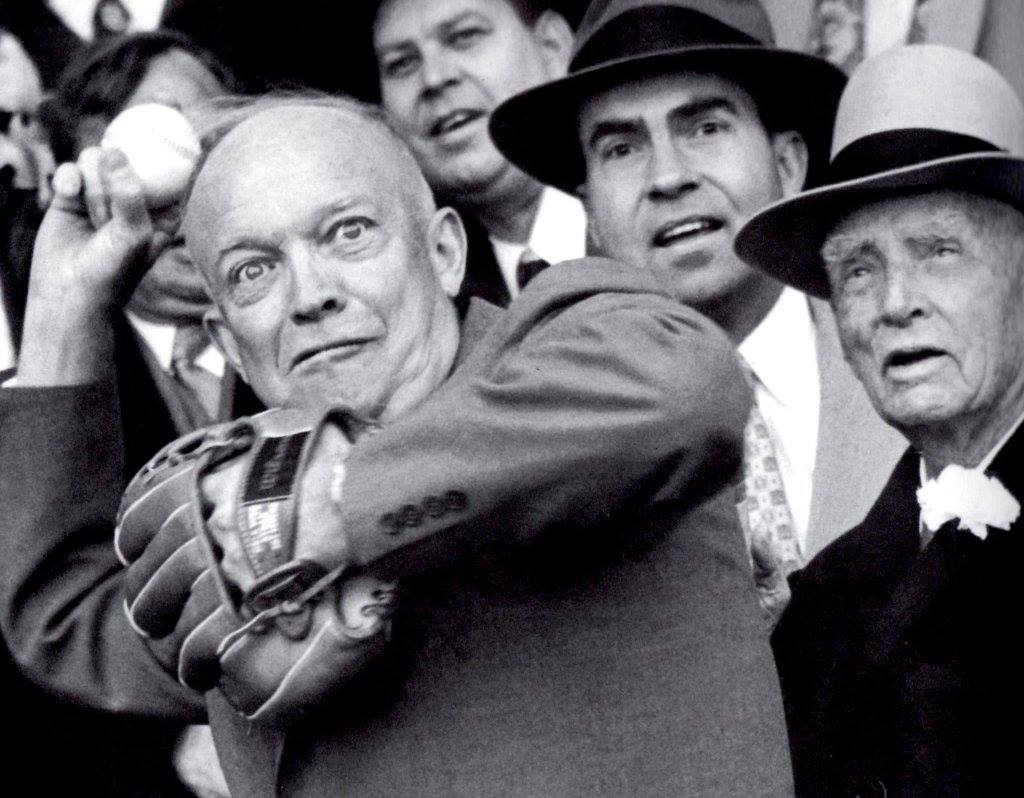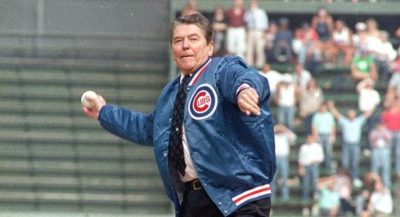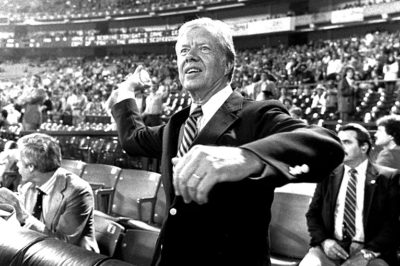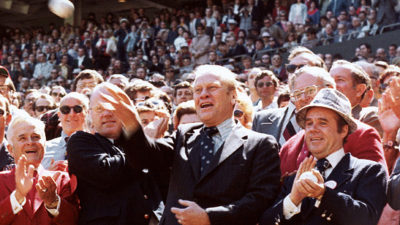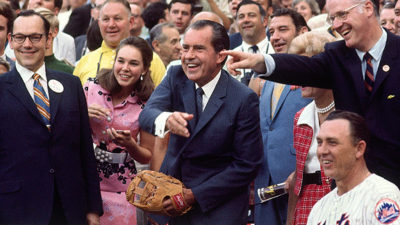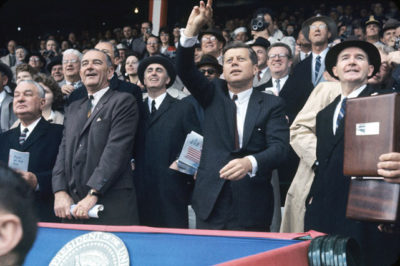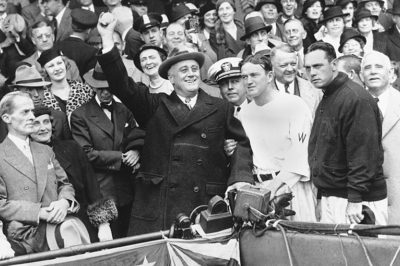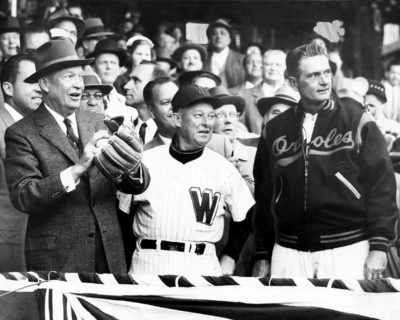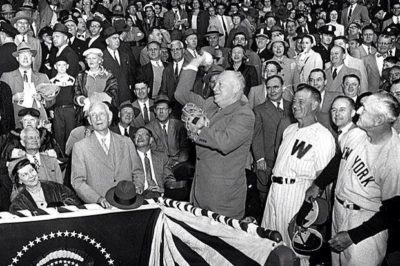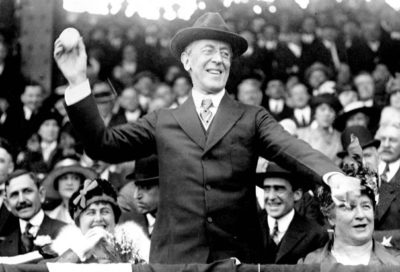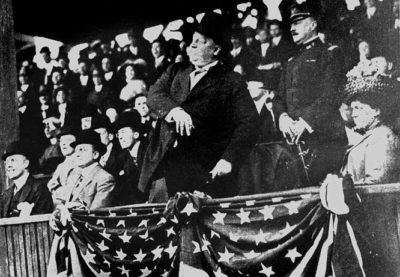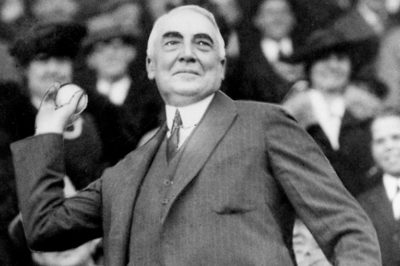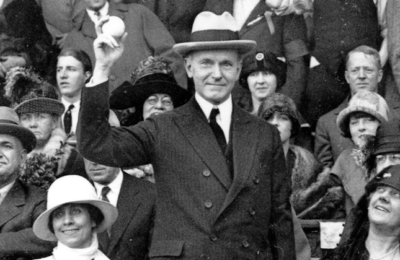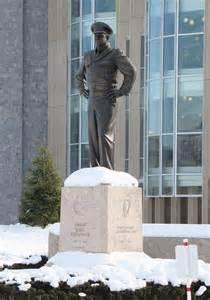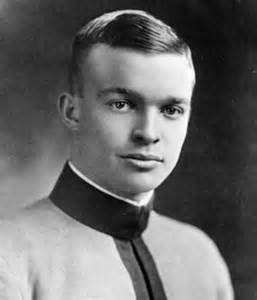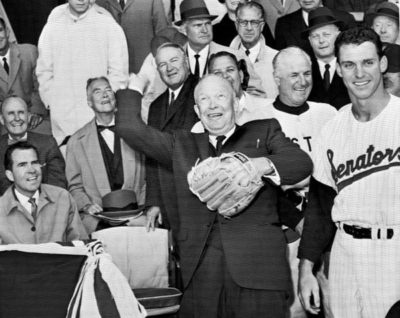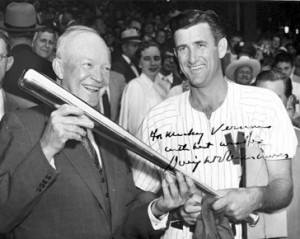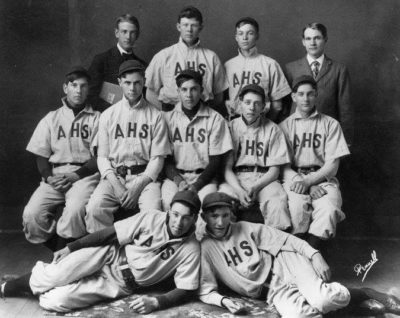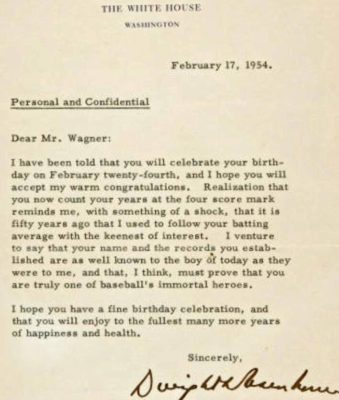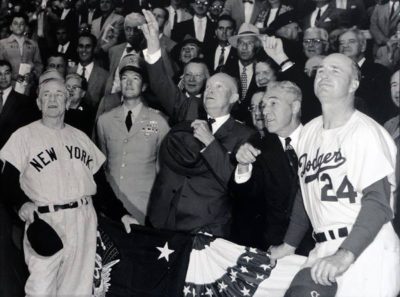Baseball History Comes Alive Now Ranked #2 by Feedspot Among All Internet Baseball History Websites and Blogs!
Guest Submissions from Our Readers Always Welcome!
Subscribe to Baseball History Comes Alive! for automatic updates. As a Free Bonus you’ll get instant access to my two Special Reports: Memorable World Series Moments and Gary’s Handy Dandy World Series Reference Guide!
“Baseball and Presidents” Photo Gallery
Click on any image below to see photos in full size and to start Photo Gallery:
It’s Presidents’ Day, Let’s Recall President Eisenhower’s “Baseball Secret!”
The tradition of United States presidents throwing out the first ball of the season in Washington had started with President Taft; and, by the look in his eye, Ike wasn’t timid about taking his turn.
Looking on as Ike prepares to toss the first pitch on Opening Day, 1960 are Nationals’ owner Clark Griffith, Vice President Richard Nixon, and Griffith’s nephew, and future Nats’ owner, Calvin Griffith.
Born in 1890 and growing up in a relatively poor family, Eisenhower, as a small boy, often declared his ambition to one day be a baseball player “like Honus Wagner.” Later, at West Point, Eisenhower tried out for the baseball team but didn’t make it. He was later quoted as saying, “Not making the baseball team at West Point was one of the greatest disappointments of my life…maybe my greatest.”
What seemed like a stinging personal disappointment to the young plebe Dwight Eisenhower may have been, in retrospect, good fortune for the Free World. Read on…
Ike once revealed an incident from his youth that can only be described as a deception. Under the most draconian interpretation, it could conceivably have gotten him disqualified for enrollment at West Point or even expelled. Before entering West Point, by his own admission, he evidently played baseball for money. He disguised himself behind the pseudonym “Wilson” to avoid jeopardizing his amateur standing which was essential playing college football and baseball.
Playing under a pseudonym was not unknown in those times, but it would have opened young Eisenhower to the charge that, at least technically, he had deceived West Point and its vaunted honor code. And continuing to play on a varsity team would have increased his risk of exposure and possible expulsion. His glorious military and political careers may never have happened.
Once, after World War II had ended, Giants’ manager Mel Ott asked Gen. Eisenhower whether it was true that he had played semiprofessional ball. Basking in the crowd’s adoration that day, his guard probably down, Eisenhower replied within reporters’ earshot that he indeed had played for money “under the assumed name of Wilson.”
The Eisenhower Library houses a 1961 notation by his devoted longtime secretary, Ann Whitman that “DDE did play professional baseball one season to make money,” and that he made “one trip under an assumed name.” Another note sets down the ex-president’s private order that “inquiries should not be answered concerning his participation in professional baseball — as it would necessarily become too complicated.”
I guess we can all be thankful that Cadet Dwight Eisenhower didn’t make the West Point varsity baseball team!
-Gary Livacari
Photo Credits: “Nationals On Parade,” by Mark Stang; and public domain
Information: Excerpts edited from the article, “Eisenhower’s Baseball Secret,” by Michael Beschloss http://www.nytimes.com/2014/07/19/upshot/eisenhowers-baseball-secret.html?abt=0002&abg=0
Check out my two books, both now available on Amazon in e-book and paperback: “Paul Pryor in His Own Words: The Life and TImes of a 20-Year Major League Umpire”and “Memorable World Series Moments.” All profits go to the Illinois Veterans Foundation
